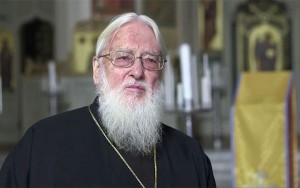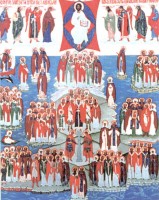 British culture is strange and I speak as an Englishman. We have a reputation for being anti-intellectual yet our history has contributed some of the best minds on the planet. We were on the ground floor of the Industrial Revolution and yet we seem strangely ambivalent about its fruits, especially in the modern era. We have no written constitution and seem strangely deferential to the ruling class rather to the right or to the left. However, our radical tradition from religion through politics to humour is as strong as ever. Of course we could be simply conflicted and messed up, not really sure what path we should follow, continually vacillating between different traditions and options. Personally I take a more positive position. Putting this all together I think we treasure personal freedom and are suspicious by nature of absolutism and fanaticism. We are not without passion and commitment but this is rarely clothed with rigid ideology or unquestioned dogma. We are only slowly roused to action yet when crises present themselves, we rise to our best.
British culture is strange and I speak as an Englishman. We have a reputation for being anti-intellectual yet our history has contributed some of the best minds on the planet. We were on the ground floor of the Industrial Revolution and yet we seem strangely ambivalent about its fruits, especially in the modern era. We have no written constitution and seem strangely deferential to the ruling class rather to the right or to the left. However, our radical tradition from religion through politics to humour is as strong as ever. Of course we could be simply conflicted and messed up, not really sure what path we should follow, continually vacillating between different traditions and options. Personally I take a more positive position. Putting this all together I think we treasure personal freedom and are suspicious by nature of absolutism and fanaticism. We are not without passion and commitment but this is rarely clothed with rigid ideology or unquestioned dogma. We are only slowly roused to action yet when crises present themselves, we rise to our best.
I present this little vignette of our culture because I want to make a point about Christianity here in these islands. With the possible exception of Celtic sectarianism (which arguably has roots in disagreeable English attitudes and actions) imposed religious conformity simply does not work in Great Britain. We do not believe things because someone of great importance has told us that we should. We make our own mind up. Yet, for all this, we have a deep and strong feeling for traditional expressions of faith and life which are nonetheless open and in dialogue with contemporary culture. For centuries (perhaps since the 14th) the British have known that something has gone radically wrong with the Christian Church. Many at the Reformation thought that they had found the answer. Protestantism particularly appealed to that idiosyncratic and rebel streak in our national psyche. Many who still think about these things have concluded in more recent times that these reformed traditions have not proven durable. From the melancholic abandoned Welsh chapels of the revival to the steady post-war decline in all the denominations it can be clearly seen that Christianity in its more usual variants lays flat out and unconscious, unable to stir itself and stand against a new, aggressive secularism and atheism. Notwithstanding the fact that our historic antipathy towards Rome remains intact only by virtue of lingering national prejudices, few seriously expect Christian renewal to come from that direction. The two cultures, national and religious remain too disparate.
Orthodox Christianity from which we might and should expect much has not yet woken up to the parlous spiritual state of this nation. However, there are hopeful signs that some Orthodox with a different national, cultural and linguistic heritage are indeed waking up to the fact that this is not a nation whose way of life and mores is any longer informed, influenced and guided by its historic heterodox confessions. Now is the time, therefore, when we, as the Catholic and Apostolic Church of these Isles need to rise to the occasion and present Christianity as it truly is; not a dead and failing institution but a vibrant, compassionate, historical and fresh expression of the God who for our sake took flesh and the humanity of every culture and place in order to redeem it. At its generous best, Orthodox Christianity has a character which is supremely fitted to the best of our own British culture and although this applies to every nation under heaven the Orthodox Church must not be slow in recognising the possibilities presented to it by God in order to connect with that right here and right now.
Source: Antioch Abouna



















